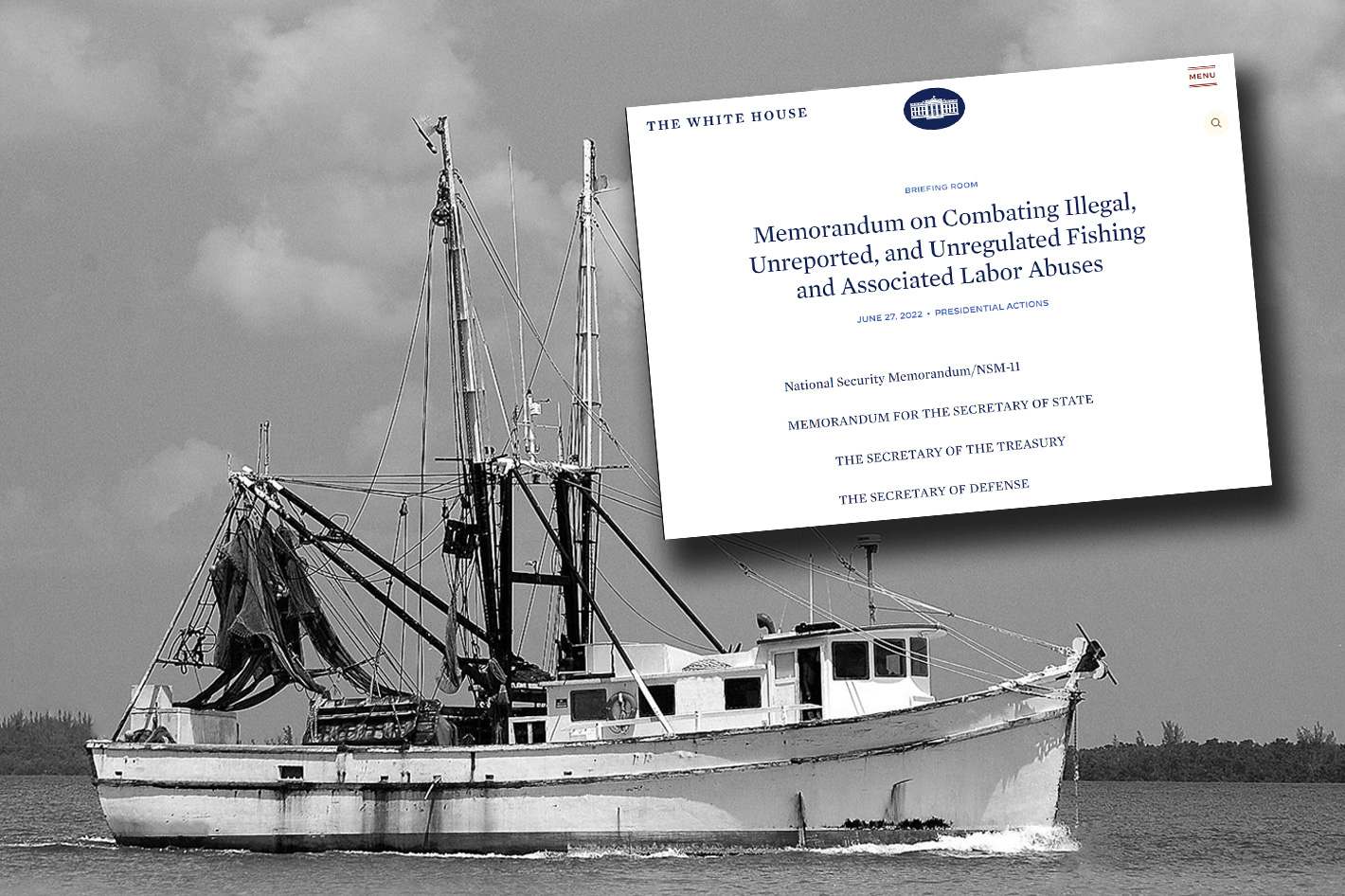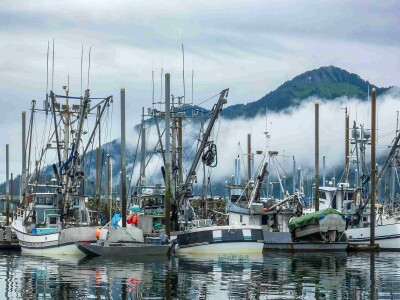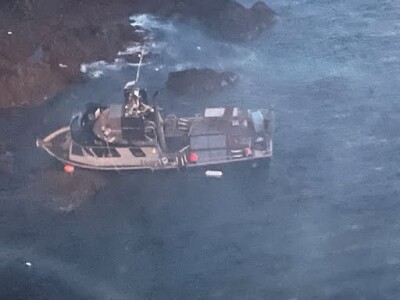In the coming months, through the CALM-CS initiative, NOAA Fisheries will pursue public-private partnership efforts which aim to end illegal labor practices in the industry.
A new initiative called the Collaborative Accelerator for Lawful Maritime Conditions in Seafood (CALM-CS for short and pronounced "calm seas") was announced this July, during a collaborative stakeholder summit hosted by NOAA. The title of the meeting - “A Call to Action: Ending Forced Labor and Promoting Decent Work in the Seafood Sector” – clearly states its goals.
Senior officials from the Departments of Commerce, State, Labor, U.S. Coast Guard, and the U.S. Agency for International Development met with representatives of businesses, humanitarian groups, and government agencies across the spectrum to discuss collaborative approaches to support decent working conditions in the seafood sector.
Energetic discussions during the meeting focused on innovative approaches being used, lessons learned by organizations across the sector, and a shared commitment to working together to improve labor conditions throughout the seafood supply chain.
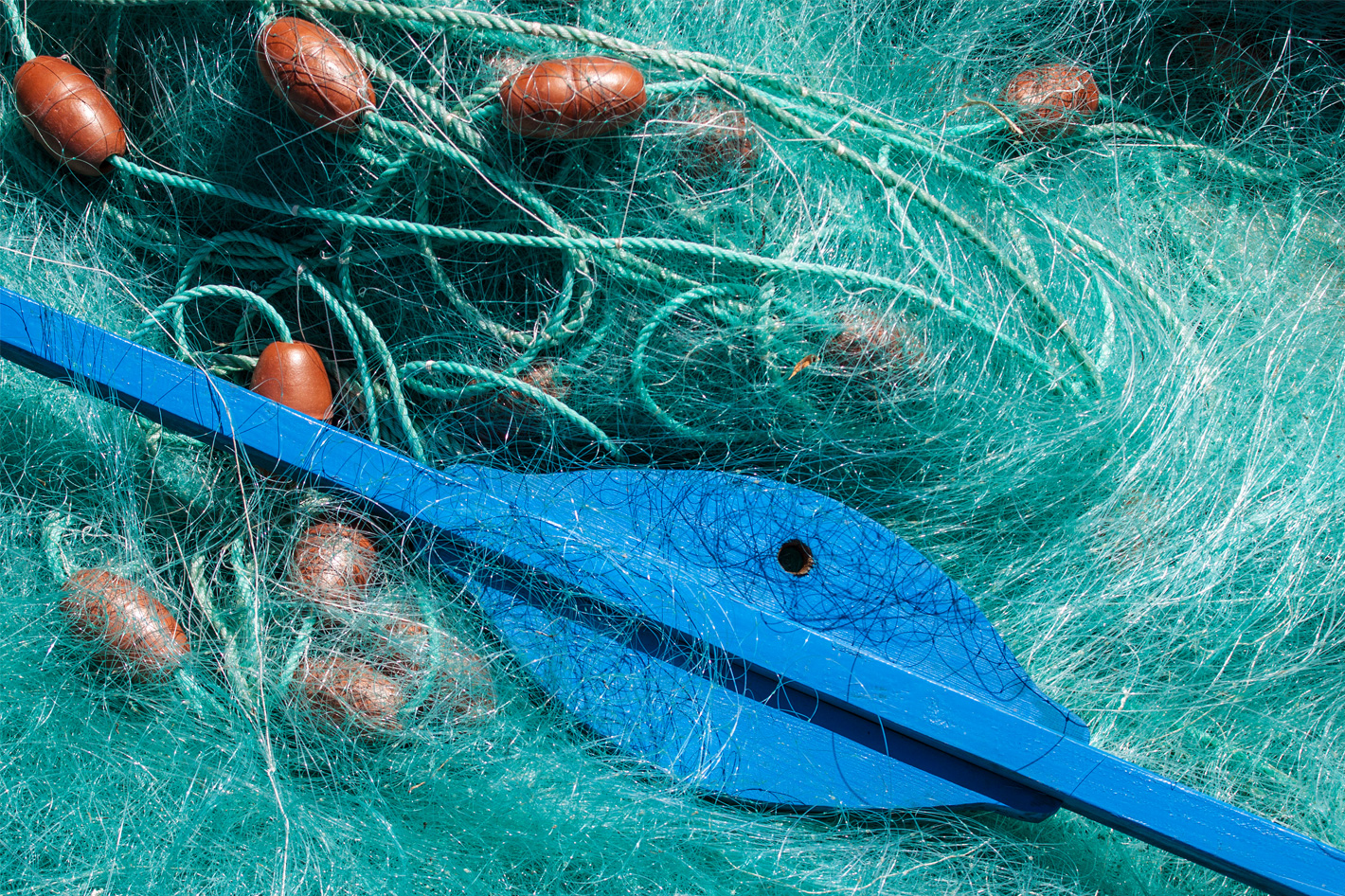 Everyone deserves a safe workplace
Everyone deserves a safe workplace
U.S. Secretary of Commerce Gina Raimondo said "by coming together to address illegal labor practices, we can have a positive impact on seafood industry workers and families around the world, and help ensure the stability of the broader seafood supply chain.
“We hope that CALM-CS can leverage the urgency we all feel toward these issues and be just one part of the response to this call for action that is shared around the world," said NOAA administrator Richard Spinrad.
Illegal and inhumane working conditions in the seafood sector, such as forced labor are devastating for the victims and their families, according to NOAA officials. Those practices also contribute to destabilization of maritime security and supply chains, as well as the degradation of fisheries and broader marine ecosystems.
Left unchecked, illegal, unreported, and unregulated (IUU) fishing and associated labor abuses undermine U.S. economic competitiveness, national security, fishery sustainability, and the livelihoods and human rights of fishers around the world.
“Everyone deserves a safe workplace” said President Biden in a recent National Security Memorandum on Combating Illegal, Unreported, and Unregulated Fishing and Associated Labor Abuses, as he reinforced the commitment of the U.S. Government to fight labor abuses in the seafood sector. President Biden also called for agencies to increase their collaboration with non-governmental partners to develop comprehensive approaches to combat these conditions. CALM-CS responds to this call.
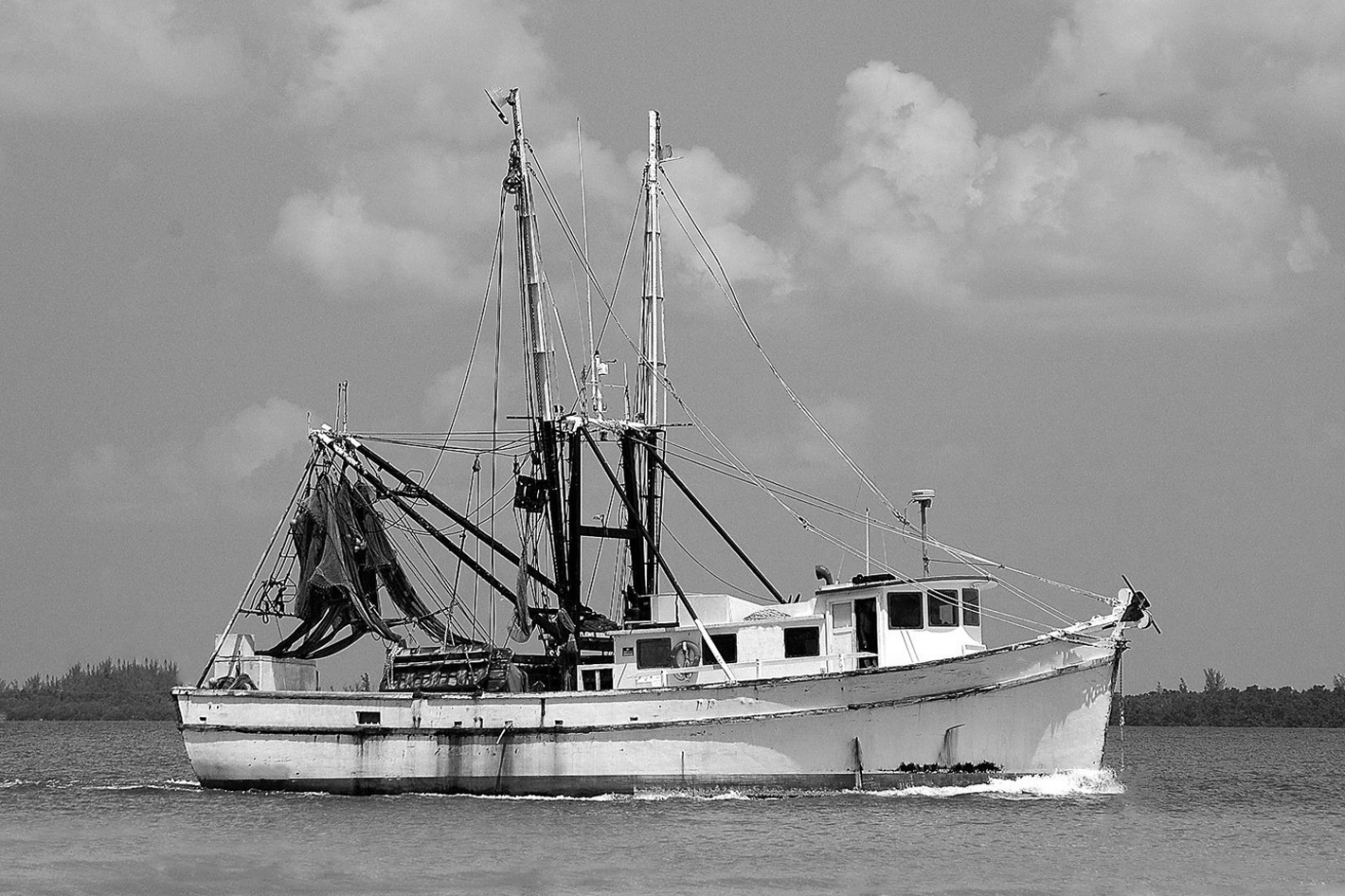 Five key strategic priorities
Five key strategic priorities
At this key moment, participants from all relevant sectors are invited to join the CALM-CS initiative to collaborate on how we can best work together to accelerate efforts toward ending forced labor and improving working conditions across the seafood sector.
CALM-CS efforts will focus on five key strategic priorities:
- Identifying best practices for industry accountability and due diligence for decent working conditions throughout the seafood supply chain
- Exploring novel sources of information, and enhancing means to share and analyze that information, to better identify illegal and unsafe labor practices in fisheries
- Leveraging technology and supporting relevant organizations to reduce vulnerabilities of crew and observers to labor abuses at sea
- Exploring potential tools to enhance safety and labor conditions aboard U.S. vessels
- Supporting collaboration mechanisms across workers, governments, industry, and civil society to support workers within the seafood industry, including their ability to organize and access remediation and justice
CALM-CS will focus on steps that can be taken outside the government to address this complex and complicated issue. The initial work of participants will be to develop clearly articulated, time-bound, and achievable deliverables under each of the priority areas. These deliverables should result in meaningful progress toward reducing forced labor in the seafood industry.
NOAA says that CALM-CS is open to participants from all relevant sectors—workers, harvesters, processors, retailers, brokers, NGOs, and think tanks. Experts from other sectors with experience in addressing labor issues may also participate in meetings and other initiatives on an ad-hoc basis.





